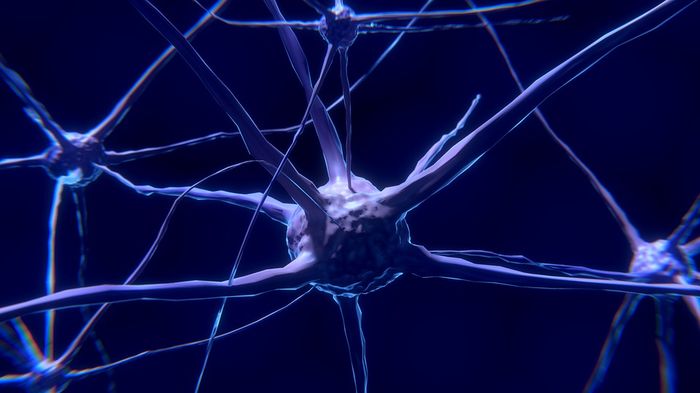Food for thought on dementia: can different cultural diets strengthen brain health in different ways?
Yan-Yi Lee explores the potential link between diet and dementia, arguing that different cultures’ eating habits may be protective against neurological disorders later in life.

The neurodegenerative epidemic we see today has summoned extensive collaborative efforts from various fields of science. A continuously absent cure has paved the way for interdisciplinary researchers to think out of the box; in the case of dementia specifically, a pivotal move is understanding how certain lifestyles and non-pharmacological interventions may either defer its diagnosis or lessen its effects. Factors at stake typically involve cognitive training, exercise, neurostimulation, sleep therapy, and diet, with the final one being perhaps the most widely discussed in the public community, which is understandable; food, after all, is life.
Nutritionists have therefore been busy exploring the helpfulness of food in slowing down the process of cognitive decline. The interest often lies beyond particular food items (‘antioxidants in berries can fight off detrimental free radicals during the brain’s ageing process’) and in cultural diets in a more general sense. We may suspect that this curiosity stems from a transnational perspective, as spotlights cast on cultures that seem to do particularly well on any specific health dimension. It is only natural to wonder why, for example, the rate of Alzheimer’s disease is multiple times more prevalent in America than in India. The extent to which diet plays a role in forming these differences also piques the interest of many.
“Cultural variety is not only the spice of life, but also it is the fuel that puts the brakes on neuronal decline”
Among population studies on food intake, the most frequently discussed is the Mediterranean diet, which, as many are aware, is characterised by legumes, fruits, moderate consumption of fish, dairy, wine, and multiple splashes of olive oil rich in healthy monounsaturated fat. While the Mediterranean diet is studied for its relation to physical health in general, scholars have also been fixating on its role in fostering brain health. In meta-analyses, an observation that emerged was that constant adherence to a Mediterranean diet constitutes a top factor in protection against Alzheimer’s disease and cognitive decline. Intriguing findings also appear eastward. Laboratory studies have found that curcumin, an ingredient often found in Indian cuisine, inhibits the building-up of harmful beta amyloids (i.e., proteins responsible for the formation of Alzheimer’s disease). Studies even discover that curcumin is much more efficient in performing this than other drugs used to treat dementia. Further, it is found in clinical trials that ginseng (a plant widely consumed in China) can potentially improve cognitive functions even in Alzheimer’s disease patients if prescribed with 4.5 grams daily. These studies seem to suggest that (cultural) variety is not only the spice of life, but also it is the fuel that puts the brakes on the neuronal decline – at least to a certain degree.
In this ongoing discussion of food and dementia, there are a few caveats to heed. Firstly, nutritional research does come with its limitations (a fact that is less emphasised in public science journalism); it isn’t possible to fully control participants’ diets on a long-term basis, and causal relations between food and health are challenging to pinpoint with clarity. Secondly, we ought to exercise extra caution when interpreting the results of population studies of diet and brain health, considering the other societal factors that may play a role. For instance, the low incidence rates of Alzheimer’s in India may be attributed not only to their cuisines, but a considerable part of their population is actively bilingual and more exposed to opportunities to stimulate cognitive functions throughout their lives. Thirdly, a critical aspect to discuss is the limited knowledge about dementia at present. Dementia itself is an incredibly complex disease, with each of its subtypes (Alzheimer’s, frontotemporal, vascular, Lewy bodies) stemming from different pathologies and affecting various parts of the brain. We have reason to suspect, for example, that foods regulating blood pressure and cholesterol may play a more significant role in vascular dementia (as it involves the cardiovascular system) than, say, frontotemporal dementia (caused by abnormal protein folding in the frontal parts of the brain).
We may never be able to truly unravel in precise detail the extent to which diet plays a part in deferring dementia symptoms or lessening the effects of it; however, it isn’t naive to work more carefully towards a stronger appreciation of how diets may work concerning other non-pharmacological interventions in deferring or treating dementia. In any case, it is encouraging to see how the excitement of having exotic foods in our current day may come with the extra benefit of having a more diverse, brain-beneficial repertoire of nutrients. It is truly exciting how this line of studies will unfold.
 Comment / Cambridge students are too opinionated 21 April 2025
Comment / Cambridge students are too opinionated 21 April 2025 News / Candidates clash over Chancellorship25 April 2025
News / Candidates clash over Chancellorship25 April 2025 News / Cambridge professor paid over $1 million for FBI intel since 199125 April 2025
News / Cambridge professor paid over $1 million for FBI intel since 199125 April 2025 Comment / Does the AI revolution render coursework obsolete?23 April 2025
Comment / Does the AI revolution render coursework obsolete?23 April 2025 Comment / Cambridge’s tourism risks commodifying students18 April 2025
Comment / Cambridge’s tourism risks commodifying students18 April 2025






